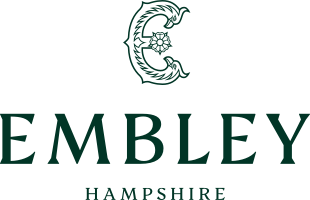Beginning this piece is a tad tricky. Asking what schools are for in the current climate is likely to elicit as many answers as there are interrogators.
I can’t speak for others but from the outset I have always been clear that Embley exists to make the world a better place. We do this through the formation of children. It is the word ‘formation’ that is most significant here. Education is the drawing out from within an understanding of the world in its many facets. Formation is the development of the whole person – the better that having understood the facets of the world, they should take their place in it and make a difference. Therein lies the challenge. Think on.
The development of cognition, understanding, analytical skills and the capacity to present a coherent argument is well rehearsed in lessons every day. The overt timetable structures the hours, regulates activity and determines a course which is open to testing and verification. The reporting home and conversations with parents at parent evenings will almost certainly focus on this area. The hidden curriculum of formation does not admit the same quantitative testing or scrutiny. But it exists, and in so many ways will be the underpinning of all the successes in all the other areas. Think on.
The formation of character is the thing that happens between the pages of the textbook. It is about how children grow and develop as persons not disembodied minds and it is ultimately the stuff of life rather than the stuff that makes a living. The career rests on the character. In one of our early Sixth Form Nightingale Lectures, we heard how Ferrari tore up CVs as candidates entered the interview room. Now it may be apocryphal or not, but the reason he gave was that everyone who gets into the room is capable, technically, of doing the work, but not all are right for the team. This can come as a real kick to those who gather qualifications but cannot engage with others or they don’t have a depth of character that allows them to cope when things go wrong. Think on.
The academic hot housing and, yes, the helicopter parenting are to blame. I use the word provocatively but deliberately. Larkin was clear that parents have the best of intentions, but they have much to answer for. In a lively and informative presentation on Monday night Alicia Drummond (current parents should see the resources available on our Wellbeing Hub) shared some insights around this. Her approach is synoptic with Embley’s. Every parent wants to protect their child from the downsides of the world, and from the petty unkindness that flesh is heir to. But if they, the children, are insulated from this – like plants in a greenhouse – what happens when the inevitable first frosts of living away from home comes? They need the resilience to accept the slings and arrows of outrageous fortune; while in-school and out of school they need to have built the resolve to bounce back and have learnt to take the knocks that come because life will surely and inevitably have greater knocks coming their way. We don’t care for it, we want to shield them from it, but to do so is to rob them of the capacity to brush off the first and second frosts; to cope with the stress and anxiety that comes with the project work of life. Think on.
I hope this doesn’t come over as cruel, it is certainly not meant to. But have a care. Don’t rush in to ‘fix’ friendships; don’t rally the forces to defend ‘the cause’ without thinking that children get stuff wrong, there is a consequence and better deal with that dynamic now, the better to spare harder lessons in consequences later. Where a child may, superficially, feel the comfort of Mum and Dad always arguing their case; what sense of entitlement does that leave them with? Ultimately how paralysing is this for their sense of authenticity, accountability? Is the impassioned WhatsApp message designed to strike a blow for justice against the monstrous villainy of those set against my child likely to end in peace and reconciliation, or as is more likely to end in the polarisation of positions and the entrenchment of views from which disastrous salvos of indignation are exchanged over a no-man’s-land of confused loyalties. Think on.
It is counter-intuitive to write ‘in praise of anxiety’. But honestly reader, isn’t it the case that we all have to deal with it in life? Children will become anxious and for a variety of reasons. The expectations of assessment, the desire to fit in and belong, the need to find their tribe, the outcome of UCAS decisions and the concern for the future. This is never best side-lined or avoided. One cannot say oh dear, well don’t worry, let’s do something else. The reality is much more ragged at the edges. There is no ‘play-book’ for dealing with this and, if you ever had one, I suspect you have by now lost the instruction manual that came with your child at birth. We never had one with our girls. Hey ho. Alicia offered some thoughtful and constructive ideas for engaging children and adolescents. She tabled some excellent actions to support your thinking as you engage with your children through their personal formation. Read on.
Love lies at the heart of all of this. Love understood here as the desire to will the good of the other means that we stand beside them or behind them. As we run along following their progress in riding the bike, the love that releases our grip of the saddle allows them to wobble into confidence, never cosseting or convenient, desiring only the good for them. This good ultimately forms them to be their best and in so doing makes the world a better place through their influence on it. Think on.
MORE BLOGS —
Parent wants
Been a busy few weeks – though when isn’t it? I have spent quite a bit of time speaking with Prep School Heads.
Bridges
In January 1942, in a small suburb just outside Berlin, a group of engineers, scientists and logicians gathered to map out a strategy that would change the face of Europe.




